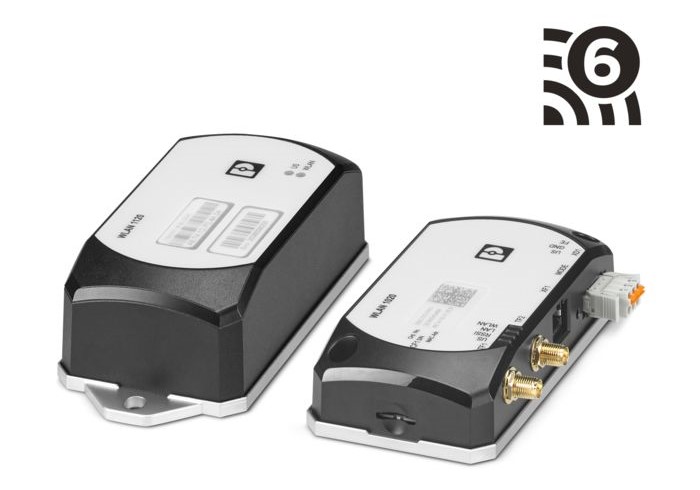ASIA ELECTRONICS INDUSTRYYOUR WINDOW TO SMART MANUFACTURING
New WLAN With WiFi 6 to Surge Industrial Automation
Phoenix Contact is extending its industrial network portfolio with WLAN client modules following the Wi-Fi 6 (IEEE 802.11ax) technology standard. Accordingly, the new modules in the WLAN 1000 series support WLAN gross data rates up to 2,402Mbps at 160MHz bandwidth.
High-performance and reliable wireless communication networks are a prerequisite for the increasing mobility and flexibility of production. Moreover, it performs role in material transport systems in a smart factory or smart manufacturing processes.
Significant Improvements
With the new generation of WLAN modules, Phoenix Contact provides suitable products that meet the growing demands placed on modern wireless data transmission.

Accordingly, the WLAN client modules offer the latest Wi-Fi 6 technology (IEEE 802.11ax), high performance, and a particularly high level of security and reliability.
With its powerful hardware and modern industrial Wi-Fi 6 board (IEEE 802.11ax), the WLAN 1000 series has up to ten times more data throughput compared to the current modules in the WLAN 1000 product family based on Wi-Fi 4 (IEEE 802.11n). The devices provide WLAN data rates up to 2,402Mbps gross (160MHz channel).
Despite the considerable performance gains, it retains compact and proven housing designs. For that reason, it has been easy to switch to the new generation of WLAN modules.
Compared to previous Wi-Fi generations, Wi-Fi 6 opens up significant improvements in terms of robustness, real-time capability, and efficiency. Most importantly, when creating larger networks with many devices, such as AGV or shuttle systems.
In addition, the hardware of the new WLAN modules comes equipped to support the Wi-Fi 6E standard. Specifically, this allows wireless communication in the new, largely unused 6 GHz band in the future.
The plan is to have this in 2024. However, implementation depends on the result of the country-specific approval process for the devices.
8 May 2024




